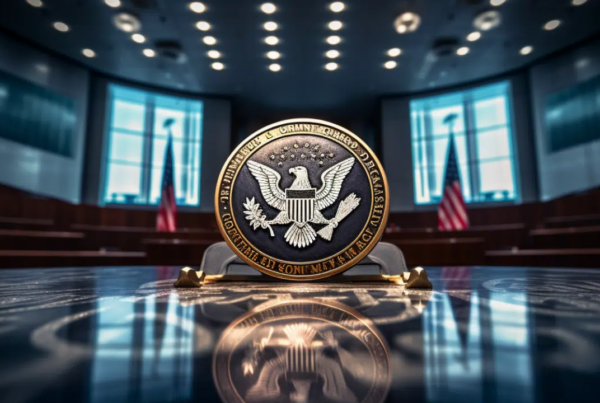A resurgent mining industry is lobbying the Legislature to make the state friendlier to the blockchain.
Two and a half years ago, Bitcoin crashed. The cryptocurrency fell from a peak value of nearly $20,000 in late 2017 to lows of about $3,200 a year later. The severe drop brought renewed scrutiny of the underlying technology, known as “blockchain,” as well as plentiful I-told-you-sos from critics.
Put as simply as possible, blockchain is a digital ledger on which transactions can be recorded anonymously across decentralized computer networks. When someone receives a Bitcoin, that asset is secured by a transaction ID, a unique string of numbers and letters. Bitcoin was the first, but other cryptocurrencies, such as Ethereum and Dogecoin, have joined the market. Bitcoin was designed as a finite resource—there will only ever be 21 million Bitcoins—that must be “mined” by giving over computer power to the network that secures each Bitcoin transaction. The more computer power granted to the network, the more Bitcoins received as a reward.
After the crash, the idea of a Texas Bitcoin gold rush, in which savvy crypto prospectors would set up giant industrial facilities to mine the currency with high-powered computers, seemed like another burst high-tech bubble. Wired even published a feature story in 2019 about the small town of Rockdale, which sits between Austin and College Station, where a Bitcoin boom and subsequent bust decimated the town’s dreams of renewed prosperity.
Yet, nearly two years later, the boom days seem to be back. So far, nearly 19 million Bitcoins have been mined, worth a total of roughly $1 trillion as of Thursday. It’s understandable, then, that more and more players have joined the effort to mine the remaining 2.3 million Bitcoins. The push to transform Texas’s abundance of rural areas with surprisingly robust and cheap electricity access into Bitcoin mining towns has exponentially increased, driven by the currency’s surge to record levels (as of April 29, one Bitcoin is worth close to $53,000. The high was earlier in April: $63,729.50).
Bitcoin, it turns out, isn’t done with Rockdale; several companies are investing hundreds of millions there, taking advantage of electrical infrastructure left behind by Alcoa, a Pittsburgh-based aluminum company that at one time employed two thousand residents of the town. Earlier this month, the Bitcoin mining company Riot Blockchain signed a deal to buy Whinstone US’s Rockdale mining operation for $651 million in cash and stock. Texas now has the largest Bitcoin mining presence of any state.
Meanwhile an industry lobby calling itself the Texas Blockchain Council, which launched in November, is pushing state legislators to make Texas more blockchain-friendly. At least four bills introduced in the Texas House and Senate this spring are being promoted by the Council, whose members include Richardson-based Hadera Hashgraph, Ohio-based Hyland Software, and Austin-based Trammell Venture Partners.
One of the bills would make Texas only the second state in the U.S. to establish a Uniform Commercial Code amendment. The measure, similar to one passed in Wyoming in 2019, affirms digital currencies such as Bitcoin as valid for commercial transactions. At least one critic points out that the bill, as written, doesn’t do enough to establish what happens when real-world liens are enforced against someone’s virtual-currency assets.
CURATED FROM:
Gallaga, Omar L. “Amid a Bitcoin Boom, Texas Leaders Get Cozier with Cryptocurrency.” Texas Monthly, 29 Apr. 2021, https://www.texasmonthly.com/news-politics/bitcoin-cryptocurrency-texas-blockchain-leader/






